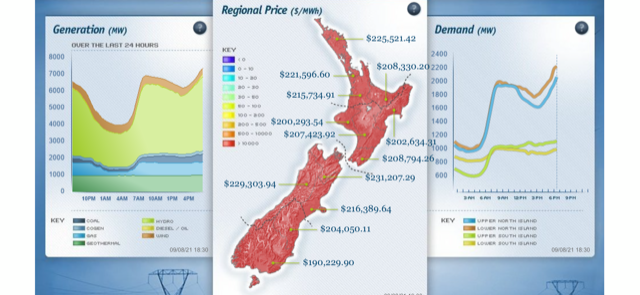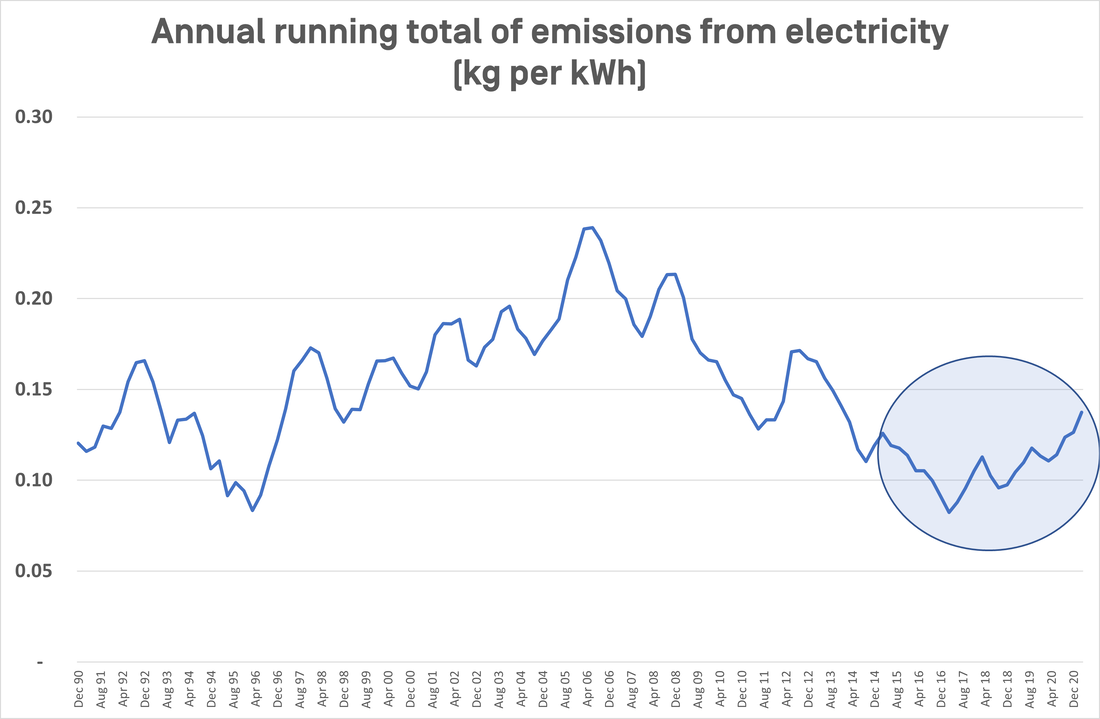|
11/4/2021 0 Comments November 04th, 2021Glasgow gives us hope; the three key agreements are the three things that can most help.
Methane: gives us near term relief in reducing GWP Halting deforestation: the cheapest form of GHG reduction Coal elimination: an end to our biggest long term polluter.
0 Comments
8/8/2021 0 Comments August 8th, 2021Electricity security Well, that was not a good look was it.
Lights out and prices at $220k/MWh or $220/kWh. That is, turn on your average light for an hour and it is costing someone $22. Probably not you, unfortunately. $22 is more than half the world's people earn in a day. What happened? Start with market design, don't end there. Rather than focus on wind that is not blowing, and a cold night, focus on the different drivers between a separated generator and a separated retailer against the status quo, vertically integrated gentailers. The latter are there to match their own book. They are not thinking value maximisation. Any generator with their eye on the prize would have had their plant on standby. Vertical integration creates laziness. Markets deserve better than that. Please do not cloak this behaviour in terms of the market working as it should. It did not because it was not structured to work properly. Real markets work much much better. Please regulators, get us there before markets themselves become the scapegoat. 5/1/2021 0 Comments May 1st, 2021Agricultural emission priorities “Cutting methane is the strongest lever we have to slow climate change over the next 25 years”, said Inger Andersen, the UNEP Executive Director.
Unlike CO2, which stays in the atmosphere for centuries, methane breaks down quickly and most is gone after a decade. The key is to reduce new sources of methane emissions e.g. more cows, more natural gas fields that leak, AND reduce methane emissions from current sources e.g. reduce methane per litre of milk or kg of meat, reduce the leak rate (currently 2.3%) from natural gas pipelines and wells. Reducing methane from current sources buys us time to reduce CO2 emissions from energy, particularly in the low capital world. Improving methane efficiency of livestock is a priority. Some technologies suggest methane efficiency can be improved up to 95%, and 30% near term. Reducing livestock can help, however to get to 95% improvement, you'd gut the New Zealand farming sector, and its economy, and the principles of social contract. Hasten technologies that reduce methane embedded in output as a priority. 4/29/2021 0 Comments April 29th, 20213/31/2021 0 Comments March 31st, 2021Not every greenhouse gas is created equal It has occurred to be that there are material differences between greenhouse gases.
CO2 is about the transition from low-capital agricultural economies, through capital-intensive industrialisation, to a high-capital developed state. Methane is about... 9/30/2016 0 Comments September 30th, 2016The equity of climate change mitigation In the developed world we have reached a developed state. No brainwave there.
However, that state involves a lot of concrete buildings and roads and infrastructure that have consumed the 'stock' of CO2 available in the atmosphere. Capital means both financial capital and GHG capital. In New Zealand we deforested to create farmland that now yields our economy great reward. Similarly, we have built our factories of steel and concrete, and roads to take our goods, and this has consumed GHG capital. Poorer countries are trying to take the same journey. It is not up to us to criticise that journey, it is up to us to help it not take the toll our journey did. And we can. Wind farms in the Gobi. Pay to protect the Amazon. So many more examples. |




